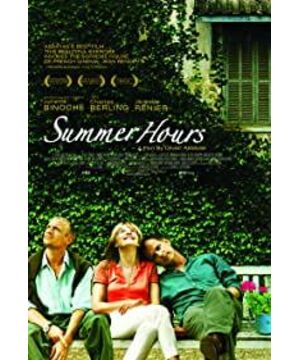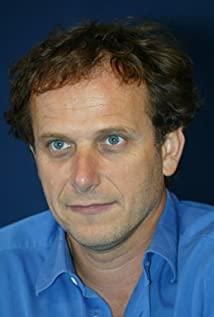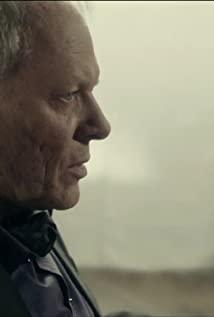If the artwork and house related to my mother are preserved as a place to meet in the future, and at the same time, the memory of the relatives can be preserved, it is actually a good thing. But the reality is that the three brothers and sisters from different parts of the world do not necessarily have time to meet every year, even if they can return to France on a regular basis. Also, who can afford those high house maintenance costs, if they don't sell and transfer, Those works of art may eventually be covered with a thick layer of dust as people go to empty buildings.
Maybe this is the contradiction that life sometimes brings to people. Not only regrets the loss of close relatives and objects that carry memories, but also has to recognize the fact that the passage of time is unavoidable. One of the scenes is very touching. Shortly after the film begins, the dying Elena sits alone on a rattan chair and talks with the old servants about her own afterlife, "They grow up and have their own lives and stories, Many things will disappear with me." After all, memory is something that is too abstract. Through the time like a gauze, it will only be less and less passed down from generation to generation.
"When they saw their own vase in the glass cabinet, Frederick was very touched, and felt that the vase seemed to be imprisoned. It should be placed on the table in the wind, filled with water, and planted with flowers. Only then is it called self-consistency Life. As a tribute, he gave another equally valuable bottle to the loyal old servant Eloise, who did not know the value of the vase, but in fact, day after day, helped it realize the continuation of its destiny. [1]"
The obsession of the eldest son, Frederick, with the vase reminds me of the view of museum skeptics, who deny the preservation of art by museums. To that end, one of the examples they give is that when you put a Raphael painting in a museum, you keep an ancient object rather than the painting itself. "The art of a museum, the transfer of a work of art from a place originally determined to a museum, means to interrupt the always existing between genius and society, art and customs, art and religion, and art and life. There is no doubt that
museums respect objects, but how to present the flesh-and-blood connection between objects and people is always difficult. However, the emerging trend of contemporary art is irreversible, and it is difficult for people to stand on the other side of the time axis forever. For example, when you stand in front of Turner's paintings, most of his paintings are people's pursuit of light. No matter how specific the interpretation of the story behind the painting is, it is difficult to reproduce the original sound in the eyes of modern people separated by centuries, but this does not prevent viewers from extracting clues from their own experiences, overlapping with them, and experiencing them.
The film is titled "L'Heure d'été" (L'Heure d'été), presumably just because the story takes place in summer, but the plot seems more suited to the depths of winter. The heavy snow seems to overturn the entire city, and it is desolate. However, when the sun rises in the early spring, the snow and ice melt, and the marks on the road are cleaned up, whether it is sad or happy, and finally the old does not go away, and the new is new. Not coming.
[1] Yixian, "Why Home"
[2] David Carrier, "Museum Skepticism", p. 66
View more about Summer Hours reviews











